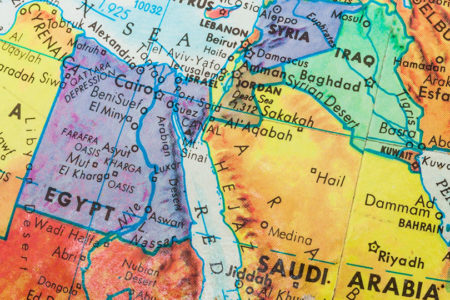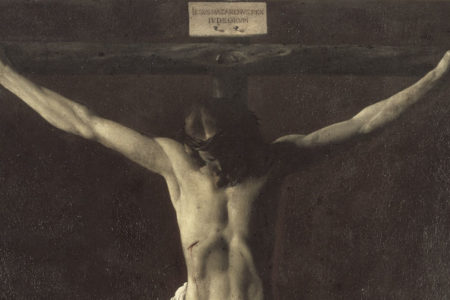The Price of Faith
In Pakistan, death awaits everyone who opposes Islam. Mujahid el Masih knows. In 1997 thousands of Muslims attacked his Christian village, setting fire to 1,500 homes, plus cars and medical clinics—even burning livestock alive.
Anything with the name Christian attached to it was destroyed, he said. Pakistan has no freedom of speech and no freedom of religion. All schoolchildren study Islam, and there are no alternatives.
“Christians are very poor,” he said. “Once your home is burned, it’s gone.” But three days after the devastating attack, 20,000 people showed up for church. Despite the persecution and destruction, they still followed the Lord.
“Jesus is not in the killing business,” said Masih. “It is only Allah’s teaching that kills people.”
Masih, a Muslim who later received Jesus as his Savior, gave his testimony in New Jersey recently at a conference organized by the Voice of the Martyrs (VOM), a nonprofit, international Christian organization headquartered in Bartlesville, Oklahoma, that ministers to persecuted Christians around the world. With him were Getaneh M. Getaneh from Ethiopia and Kamil Solomon, who grew up in Egypt. All shared how the Lord upheld them through torture, persecution, and imprisonment—an everyday way of life for those who follow Christ in many parts of the world.
Masih grew up studying the Qur’an. He was taught to hate Israel, Christians, and all non-Muslims; and he was passionate about becoming a martyr for Islam. But at 25, he gave his life to Christ and began to preach the gospel. He even went to Bible college.
While preaching in South Africa by invitation, he showed videotapes of how the Muslims had destroyed the Christian villages in Pakistan. The Pakistani government banished him, and Muslims in South Africa tried to kill him. Eventually he made it to the United States, where he teaches Americans the truth about Islam.
Christians, he said, must tell their persecutors that Christ loves them. “It is not with your own power or strength, but with the strength of Jesus Christ that you can do this. It is our job to pray for the Muslims.”
Getaneh’s Ordeal
Getaneh M. Getaneh is Ethiopian. He grew up Jewish and came to Christ as a child. Later his parents also came to faith.
Getaneh and his family began preaching on the streets and baptizing people secretly in the rivers at 2 A.M. Then someone brought the police to the riverside during a baptism, and the newly baptized Christians were killed where they stood, proclaiming Jesus as Lord.
“Communism took our freedom in one night,” he said. “My dad got killed in prison.” While being beaten, he prayed, “May the Lord have His way; may His will be done.”
The Communists also arrested Getaneh. He was repeatedly denied food, water, and sleep for days. Then they hung him upside down, poured boiling oil on the soles of his feet, and beat him with a metal cable. His prayer, he said, became, “Oh Lord, take me home.”
Terrified and in pain, he was afraid to tell his persecutors about Jesus’ love. They knew no mercy. They had burned his Bible and killed his church members. So he prayed for God’s help.
“Suddenly, with joy, I began to tell them how God so loved the world,” said Getaneh. “They thought I was crazy and put [lowered] me down.” He eventually escaped from prison and fled to neighboring Djibouti. When the Communist government fell in 1994, he returned to Ethiopia but was arrested at the airport because an autonomous Islamic court had charged him with converting Muslims to Christianity. He escaped again, this time to America.
At times his voice trembled and tears ran down his face as he addressed the group at the conference. But his passion and love for Jesus only shone through him more strongly.
“We don’t want the persecution to stop,” Getaneh said. “Let it go. That is the Word of God. Everywhere, persecution is there.” But he asked Christians to pray that the persecuted church would remain faithful to Jesus and not deny Him under torture.
‘Threat’ to Islam
Kamil Solomon holds a Master of Divinity degree from the Evangelical Theological Seminary in Cairo, Egypt. Between 1990 and 1993 he was a full-time evangelist, apologist, and counselor until his arrest by the Egyptian secret police in 1993 on charges of being a threat to Islam.
Although the charges were dropped and the high court ordered him released, the secret police held him for two weeks, tortured him mercilessly, and transferred him to a prison in southern Cairo for life, where he was severely tortured.
It was the Lord’s intervention through Christian organizations and radio programs in America that secured his release in 1994. Even so, he was placed under house arrest for two years, then exiled from Egypt. Now in the United States, he teaches the truth about Islam around the country.
David Brackemeyer, VOM ministries director, impressed on the audience the pervasiveness of Christian persecution. In America, persecution is virtually nonexistent. But in the rest of the world, Christians face torture and imprisonment every day. Prayer is the most powerful way to support the persecuted church, because it is through the strength of Jesus Christ that the church will grow, he said.
“Though we can never contact our brothers and sisters because it would put them in danger,” said Brackemeyer, “we can pray. They truly are our brothers and sisters in Christ, just as much as our husbands and wives and children.”
Persecution is not about extremism. It is not about putting yourself in harm’s way to show the world that you can take whatever it can give. It is about being obedient to the will of God and knowing that He will be faithful, no matter what happens in life. This is the message these men conveyed. And they shared their horrific experiences so that the world may know that the Lord is good.







